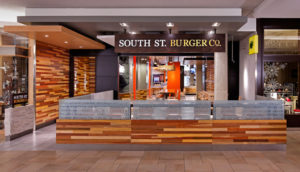Restaurant Entrances By Lydia TF, Interior Designer
When it’s time to eat, what is better than to have more than enough choice of restaurants that serve many different cuisines? The question is, how do you actually choose going to one restaurant over another?
The first things most people think about are “How much does it cost”, What kind of food is it? And where is it located??? All These play a factor into the selection of a restaurant, and clearly expressed designs easily answer all these questions. To recap from my previous article, some of the categories of restaurants are; quick-service restaurants, fast-casual restaurants, casual dining restaurants, and fine dining restaurants. There are very clear indications that they are different from one another. The entrance is the first indication that reflects the type of restaurant and what type of food and service you’d be expecting.
Take a look at a “quick service restaurant”: it is a quick, cheap, and usually very well located in most cities. Quick service restaurants have very strong corporate design guides that make look completely standardised. This helps create visual identity for the outlets. The entrance of a restaurant can express many things. You will notice that in quick-service restaurants, the corporate signage and entrances won’t be replicated in any upscale places. Places that want to cater to more selective crowds have tactics to provide that specific exclusive atmosphere and entrance. The entrances differ from the chain restaurants to bistros to high end restaurants.
With fast-casual restaurants, entrances are also similar and very strong identity. These types of restaurants usually have a small hostess counter that would divide the outside area from the inside. A fast-casual restaurant is designed for quick turn overs of tables. You will notice that the entrance will be very minimal to give the atmosphere of grabbing a quick bite to eat since it’s a slightly different form of fast food service.
As for casual dining restaurants, the entrance will aim to provide a separate entrance space that can vary in size and design. The arrival area serves as a transition point between the outside and to allow clientele? to be immersed in the restaurant’s concept.
Lastly, fine dining restaurants are at the top of the ladder when it comes to dining out. Usually located in a high-end area or in many luxury hotels, these restaurants exude strong design and style. The entrance is usually grand area and exclusive. In the evenings, many restaurants incorporate the use of very atmospheric accent lighting to highlight the interior ambience . Some restaurants even make an entry passage that emphasize the feeling of entering a different location and providing an increased perception of exclusivity and luxury.
If the saying of don’t judge the book by its cover apply to many things in life, it surely can’t be more wrong here. A restaurant entrance design tells a lot about food, service, and prices. Read the next articles in this series to see how each other aspect of restaurant design affects its identity and its place in the food chain!
Sheetal Chailertborisuth is a former student of Accademia Italiana Bangkok in interior and product design.
She is currently working at Fenn Designers as the Marketing and PR. Coordinator, as an Interior and Product Designer focusing on the business development side in the world of design.
Fenn is a full service design practice dedicated to Master Planning Architecture and interior design. http://www.fenndesigners.com/
